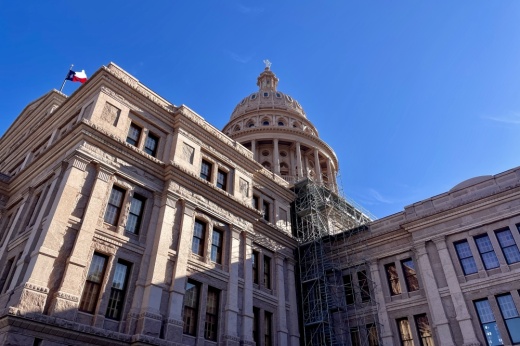Two-minute impact
The Senate Committee on Health and Human Services met Oct. 10 during the Legislature’s third special session to hear public testimony on Senate Bill 7 and voted 6-3 along party lines to advance the bill.
The bill, authored by Sen. Mayes Middleton, R-Galveston, would prohibit private companies from mandating COVID-19 vaccinations for employees, contractors and job applicants or acting against them. The bill includes no exceptions for health care facilities or any other industries.
“This bill represents a critical protection for working Texans that fear retaliation for making a personal medical decision on COVID-19 vaccines, especially for a vaccine that doesn't make epidemiological or medical sense,” Middleton said.
The Texas Workforce Commission would investigate employee complaints and fine companies up to $1,000 for violating the law. Companies mandating vaccines could also be subject to an injunction by the Texas attorney general.
While proponents of the bill said it would protect medical freedom for Texans, Sen. Borris L. Miles, D-Houston, and health care representatives raised concerns about its impact on the health care industry.
“Do you think we really should be adding more uncertainty for patients, that they will be contracting COVID from their health care providers on top of their health emergency?” Miles said.
Those opposed
Representatives from three Texas health care organizations said the bill could negatively impact health care facilities that have mandated COVID-19 vaccinations for some of their employees.
Jimmy Widmer, a physician from Temple testifying against the bill on behalf of the Texas Medical Association and other health care organizations, asked the senators to include an exception for health care providers.
“It is important for patients, including vulnerable patients seeking care from their physicians, to receive care in a healthy environment that minimizes disease risk,” Widmer said. “Physicians and health care facilities need to have flexibility to act in the best interests of our patients and our staff.”
Texas Hospital Association representative Cesar Lopez requested the bill be updated to reflect current law, which lets health care facilities exempt employees from vaccine mandates based on medical, religious or conscious reasons.
Business advocacy groups, such as Texas Association of Business and National Federation of Independent Business, were among those who registered against the bill but did not testify.
Those in favor
Several people expressed support for the bill, including Dawn Richardson, director of advocacy for the National Vaccine Information Center, a nonprofit that advocates for vaccine choice and mandate exemptions. Richardson said the bill was needed to protect health care workers who have been fired for refusing a vaccine she believed was ineffective.
“They're imposing these mandates on people that are educated in health care, and if they can't stand up for informed consent for their own rights to health care, how can we expect them to be there and defend ours?” Richardson said.
Sen. Bob Hall, R-Edgewood, said the Legislature’s job was to protect the liberties of individuals, not businesses. He requested the bill be strengthened to apply to all vaccine mandates by private employers, not just those for COVID-19.
The backstory
A new state law prohibiting local government entities from mandating COVID-19 vaccinations, masks and business closures went into effect in September.
This spring, Middleton authored a bill making it illegal for anyone to coerce or penalize someone into receiving the vaccine. The bill passed in the Senate but was not approved in the House.





